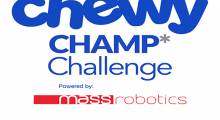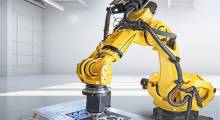Title: Chief Executive Officer, WERC
Location: Oak Brook, Ill.
Modern: Tell us about WERC’s new relationship with MHI.
Mikitka: Last year, WERC was acquired by MHI. We are still an independent organization, with our own tax ID number. We’re keeping our office in the Chicago area and our staff. As we re-organize, we have an advisory council made up of previous board members. So, in that sense, many things remain the same. The biggest change members should see is access to some MHI benefits that we can now offer, such as the market data and trends they collect. They have some very good educational tools, like their fundamentals series, that we don’t have. MHI has made a commitment to invest in WERC, and we’re already working on some initiatives we had started but had to put on hold last year. Those will all be positives for WERC members.
Modern: Looking forward, what do you see as your biggest challenge and opportunity as an organization?
Mikitka: The biggest challenge is the changing landscape for business and supply chains and the uncertainty that surrounds those. Before Covid, disruptions were generally isolated to geographic regions and specific facilities. The disruption of the last year was unprecedented. The challenge is what can we do to prepare ourselves for the next disruption, based on the lessons we’ve learned and the best practices that might come out of this. The opportunity for WERC is going to be the new products and services we’ll be able to offer. We’re looking into offering benchmarking and indexing services, for instance. And, we’re looking for more opportunities to engage front line supervisors and managers. You’ll see more attention to those areas.
Modern: We might look back at 2020, and maybe even 2021, as the year of the virtual conference. WERC is no different. What led to the decision to go virtual for the May event?
Mikitka: The realities of trying to hold a physical conference in 2021 made it impossible to proceed with confidence going forward. The guidelines in place in Chicago, for instance, precluded us from holding a live event. But, we also recognize that the industry needs something. Getting ready for our 2020 event, we were really pleased with the programming we’d pulled together, and then March 16 came, and we had to cancel that conference. We also realized the content just wasn’t relevant to the concerns of our members last spring, so we had to take a step back. And, based on everything we’re hearing, we think it’s the third quarter of 2021 before you see live events coming back.
Modern: How are you approaching this May’s virtual event?
Mikitka: Our focus is always on education, timely presentations and networking. I believe the beauty of our content is that it’s put together by people working in the industry, based on their experiences and needs. We won’t be talking about Covid. Rather, the members are looking for content on workforce issues, like addressing the talent gap, diversity and inclusion, and staffing for peak. We’re also looking at the ROI of robotics, how to integrate technologies and systems, sustainability trends and safety. Those are the hot topics coming from our membership.
Modern: What plans are you putting in place to replicate the conference experience for attendees?
Mikitka: You can’t replicate the in-person experience, so the question is: How do you bring in new ways to do education and networking? We plan to still have live components for peer-to-peer sessions so people can talk to one another. We’re stretching it out over 3.5 days rather than 2.5 days because we know people will be in their offices, getting telephone calls and emails. Presenters who are pre-recording are going to make themselves available for Q&A. One of the positives of a virtual event is that we can expand the reach of the audience because it’s a different price point than a live event, with more diverse engagement.
Modern: Last question: How does an attendee sign up for the virtual event?
Mikitka: WERC.org/2021
Article topics
Email Sign Up
















